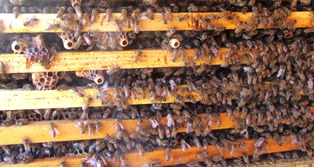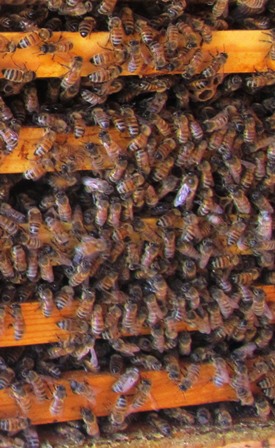Scientific Studies Show Negative Effects of NeoNics
Neonicotinoids, commonly referred to as neonics, are a new class of pesticides that are closely related to nicotine. As the U.S. government debates the use of these controversial chemicals and studies go on, the European Union has voted to ban bee-harming pesticides. See, http://www.theguardian.com/environment/2013/apr/29/bee-harming-pesticides-banned-europe.
There’s no question that the bee population has been in decline in the last decade. Many beekeepers and experts alike have been vocal in their suspicions that exposure to neonicotinoid pesticides is a likely culprit. The journal Nature published a study that revealed significant negative effects on the wild bumble bee foraging on plants sprayed with the new class of pesticides.
Pollinators of all types are important to our food crops, but especially the bumble bees and honeybees. The latter are trucked around to farms and orchards (particularly the almond orchards) in early spring to pollinate the blossoms.
Exposure to neonicotinoid pesticides resulted in wild bees doing less reproducing, having smaller colonies, and having colonies that didn’t grow as compared to wild bees not exposed to the neonics.
One of the studies was the result of research done in the wild, using 16 patches of land divided into two parcels of eight patches each. One area used canola seeds coated with the pesticide containing neonics. The seeds were not coated in the other area.
Scientists then compared the bees exposed to the pesticide with bees not exposed. The treated side had half as many bees per square meter as the untreated side. The bees in the pesticide patches also had negligible weight gain, but the bees in the untreated area gained roughly one pound.
Neonicotinoids are now the world’s most widely used pesticides. Isn’t it time farmers of the world found other options and chemical companies put less money into lobbying for these bee-dangerous chemicals and instead searched for good alternatives to help farmers deal with pests in their fields and orchards?
Tags: almond orchards, bumble bees, chemical companies, honeybees, neonicotinoids, pesticides, pollinators
 Facebook
Facebook Goodreads
Goodreads LinkedIn
LinkedIn Meera Lester
Meera Lester Twitter
Twitter






